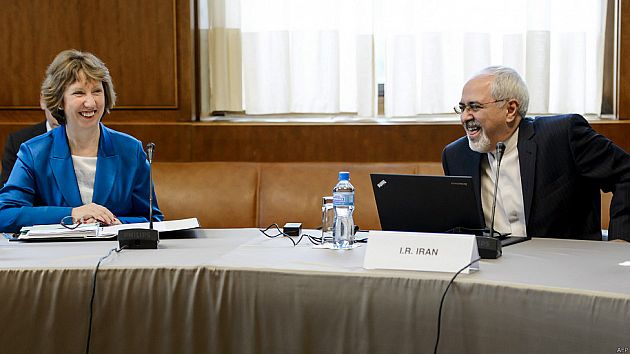Why Nuclear Negotiations Have Not Succeeded

The issue with Iran’s nuclear program began 12 years ago and negotiations have been held in this regard since ten years ago. The latest round of negotiations raised hope, but it ended without reaching any certain conclusion. This matter raised the question of why these negotiations do not reach a conclusion. In order to find the answer, one must propose this issue from the viewpoint of the other side. It was never asked what problems the other side is faced with. Therefore, I am going to start with a short introduction in this regard.
Since 1971, when I started to teach a course in Tehran University on military strategy, the issue of the Cold War was proposed but they were, in fact, thinking about a soft war. What they meant by soft war was a nuclear war. To understand the idea of nuclear war, I had to enter into its details. The first question that was raised was about the nature of nuclear weapons, how they were used, and what they could lead to. To answer these questions, it must be said that any country that has military nuclear weapons is made up of three parts: the part that produces the nuclear weapon or atomic bomb, the part that is responsible for its transfer, and the part dealing with space navigation which should guarantee that the missile hits the target.
Building the Atomic Bomb
In the first part, uranium must be enriched. Uranium can be naturally found in nature, and enrichment must be performed on it following extraction. This is a very complicated process and requires huge facilities and the installation of tens of thousands of centrifuges. However, uranium is not an atomic bomb in itself. In order to produce an atomic bomb, plutonium is needed. This substance is not available in nature and a reactor would be required in order to produce it. Ultimately, plutonium and uranium are the building blocks for a nuclear bomb. Regarding the nuclear warhead, other complex issues exist for the placement of the explosive material.
Transfer and Space Navigation
We then come to the part related to transfer which can only be carried out with long-range missiles, because a nuclear warhead has a weight of only 10 to 15 kilograms. Airplanes could not be a good choice for transfer because of their low speed and vulnerability. Therefore, the only way is to use long-range missiles, and then move on to space navigation which helps with targeting.
Based on the explanations given, the question that arises is how others look at our nuclear program. The view from the other side is that Iran has all the necessary tools for the construction of a military nuclear weapon. This is what they claim. They say that Iran has enriched uranium, has constructed the Arak reactor in order to produce plutonium, and also has long-range missiles whose range increases day by day. On the other hand, they believe Iran has technology that has allowed it to force the landing of a very complex US drone. In the eyes of the other side, Iran has a military nuclear program. Their understanding is that denying the military nature of the program is like denying the existence of the sun. It is with this mentality that we sit together at the negotiating table. The two sides are now at the negotiating table. As it is said in strategic expression, the two musketeers are now sitting in front of each other at the negotiating table and have decided not to shoot but negotiate. The two sides ask each other to put their arms down. But the other side is asking this while it is still bearing its arm, instead promising not to use it. On one hand, accepting this means disarmament and forcing the other side to surrender, and, on the other, requires an immeasurable amount of trust to believe that the other side will keep its promise not to use its arm. In order to form trust, each side looks at the other’s history on this issue. It is for this reason that such trust is not seen.
This is why this issue is more of a technological and strategic one than legal or political. What should be done in such conditions? Is there really any hope for the talks to reach a favorable outcome? I do hope there will be. Just as our foreign minister has repeatedly stated, a deal must take place. One side cannot ask the other side to surrender and be disarmed while it itself is still armed. This would be an unrealistic demand. On the other hand, there are inside and outside forces on both sides. These groups are against any kind of agreement. Iran is mostly faced with a domestic opposition who believes that the only acceptable path is the other side’s surrender. But the other side is confronted with internal and external opposition. Domestic opposition is concerned that the government would surrender. The outside opposition is other countries. Therefore, the other side is under pressure. Both sides of negotiation are faced with problems. Negotiations could be meaningful when both sides understand each other’s positions. Demands should be proposed according to the abilities of the other side. What could reach a conclusion after years of efforts is the give and take and not surrendering or forcing surrender. The opposition must realize this issue and know that their viewpoint is not practical.

